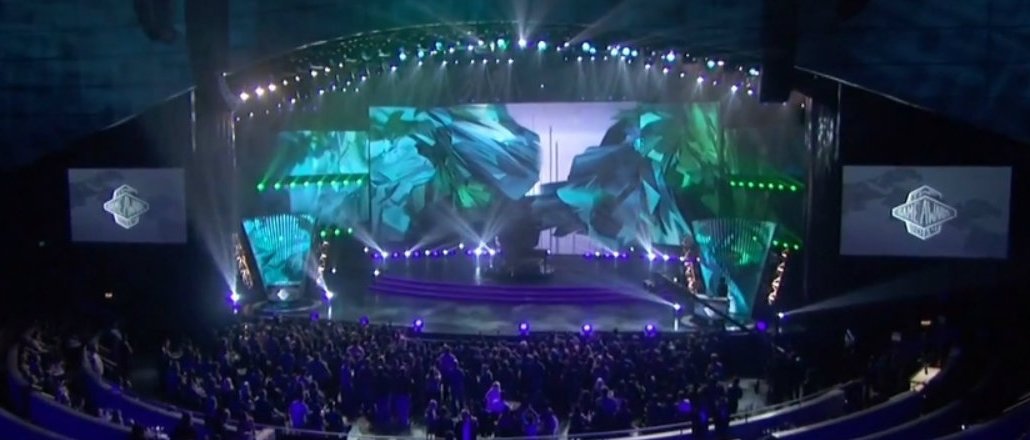
The Game Awards, an annual awards show created to fête the gaming industry, wants to be like the Oscars. But unlike the Oscars, this show is entirely digital.
Now in its second year, The Game Awards will air on Thursday, Dec. 3, starting at 9 p.m. ET. The live stream will be available across a number of platforms, including top gaming consoles such as Xbox and PlayStation, streaming platforms like YouTube and Twitch and even the online game store Steam. As part of a sponsorship deal with Verizon, the live broadcast will also air on Go90, the wireless carrier’s 2-month-old mobile streaming service.
When developing The Game Awards, the decision to go fully digital was borne out of both necessity and an understanding of the audience the show is hoping to reach, said Geoff Keighley, producer of The Game Awards. “I’ve done a lot of television and awards shows over the years, and I’ve been part of the transition that’s happening with the gaming audience, which is increasingly moving to digital platforms,” he said.
For several years, Keighley helped produce the “Video Game Awards,” which were broadcast on Spike. But as the cable network aimed to create programming that was more inclusive to women, it began to scale back support for the show. In 2013, the “Video Game Awards” aired online before replaying on TV days later.
It was during this time that Keighley saw an opportunity to do an awards show that was entirely digital. The inaugural Game Awards were not much different from Spike’s awards show. They awarded winners in categories such as Game of the Year and Developer of the Year, and featured appearances by celebrities like Conan O’Brien and “South Park” co-creator Trey Parker.
The broadcast was deemed a success, with 1.9 million live streams and more than 6.5 million total views (including on-demand playbacks). On average, viewers stuck around for 28 minutes on YouTube and Twitch, and the broadcast became the top trending topic worldwide on Twitter.
Granted, those viewership numbers pale in comparison to the actual Oscars, which averaged 36.6 million viewers earlier this year. But it’s still the early stages for The Game Awards, according to Bernard Gershon, president of GershonMedia. “Viewership is going to be fairly small when compared to a TV audience,” he said. “But they’re building the foundation for a long-term business. Just look at eSports: If somebody told you five years ago a big business will grow out of people watching other people play video games, you’d have told them they were out of their mind.”
Keighley has rounded up more sponsors for this year’s show. The Go90 deal will include exclusive “shoulder” content that will be available before and after the show on the streaming service, according to Keighley. This content will range from behind-the-scenes footage before, during and after the show as well as more in-depth pieces highlighting different games and talent featured during the broadcast.
In addition to Go90, sponsors include Bud Light, which will allow some fans to “level up” their experience with better seats. Meanwhile, game development platform Unity has create documentary shorts spotlighting top developers on its platform from around the world. These docs will run during the show as interstitials.
The focus for Keighley was to do more custom integrations than simply running multiple ad breaks with wall-to-wall ads. “It was about doing something that this community would respond to,” he said. “The gaming companies and non-endemic brands have realized that you have to add value to connect with this crowd. Everything will be tied to the gaming world and gaming culture in a meaningful way.”
While the top gaming companies will supply trailers for upcoming titles — promotional in its own way — many are also running campaigns encouraging viewers to purchase some of their existing games. For instance, those who watch The Game Awards on Xbox, PlayStation and Steam will also be given special sales discounts for select digital games.
Looking ahead, while The Game Awards are all-in on digital right now, Keighley isn’t completely against traditional distribution. After last year’s successful effort, the producer said he was approached by several networks interested in broadcasting this year’s show. “We’ve had those conversations,” he said. “But I’m emboldened by doing it on digital.”
More in Media

Digiday+ Research: Dow Jones, Business Insider and other publishers on AI-driven search
This report explores how publishers are navigating search as AI reshapes how people access information and how publishers monetize content.

In Graphic Detail: AI licensing deals, protection measures aren’t slowing web scraping
AI bots are increasingly mining publisher content, with new data showing publishers are losing the traffic battle even as demand grows.

In Graphic Detail: The scale of the challenge facing publishers, politicians eager to damage Google’s adland dominance
Last year was a blowout ad revenue year for Google, despite challenges from several quarters.





